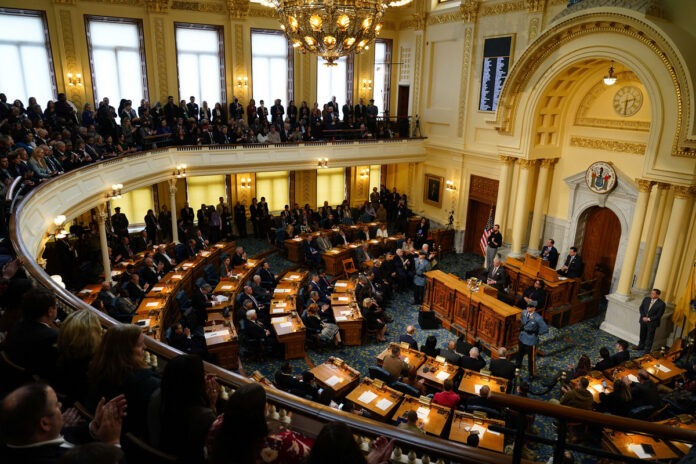New Jersey is witnessing a series of pivotal developments in politics, legislation, and the judiciary that are set to influence the state’s governance and legal landscape in the coming months. From major policy announcements to court decisions clarifying public access to internal affairs records, New Jersey’s civic scene is in the midst of significant transformation.
Governor Phil Murphy recently signed legislation establishing a cabinet-level Department of Veterans Affairs on September 11, separating it from the current Department of Military and Veterans Affairs. The move follows investigations into hundreds of COVID-19 deaths at state-run veterans’ homes, reflecting the state’s commitment to improving care and oversight for its veteran population. This new department is expected to streamline services, enhance accountability, and provide veterans with more direct access to critical resources.
In labor and workplace policy, Murphy also signed a bill on September 3 that prohibits employers from holding mandatory meetings to discuss political or religious matters, including topics related to labor organization activities. The measure strengthens employee rights and ensures that workers cannot be coerced into attending meetings that could influence their political or union-related choices.
Federal courts have also weighed in on New Jersey legislation, with the U.S. Court of Appeals for the Third Circuit upholding the state’s 2022 law restricting firearms in sensitive areas, such as parks and government buildings. This ruling reinforces New Jersey’s commitment to public safety and aligns with the state’s broader regulatory framework surrounding gun control.
The 2025 gubernatorial race continues to gain momentum as Republican candidate Jack Ciattarelli benefits from a $1 million ad campaign by a super PAC backed by the Republican Governors Association. Democratic candidate Mikie Sherrill, meanwhile, is highlighting transparency initiatives focused on the state budget, emphasizing accountability and oversight. The first debate between the candidates is scheduled for September 21, giving voters their first direct comparison of policy priorities and leadership styles.

In federal and local government, the House recently voted to curb presidential war powers, with New Jersey members splitting along party lines. Camden County is preparing for vote-by-mail procedures for the general election, mailing approximately 97,000 ballots starting September 20. County officials have worked closely with local printers and staff to maintain the integrity of the process while ensuring voters can safely cast their ballots.
Meanwhile, the state has seen high-profile legal developments, most notably in the New Jersey Supreme Court’s decision in States Newsroom Inc. v. City of Jersey City. The Court ruled that the expungement statute does not categorically bar the release of internal affairs reports, emphasizing that these records are not criminal records. However, any information related to an expunged arrest, conviction, or criminal proceeding must be redacted. The ruling clarifies the balance between transparency and privacy, requiring courts to conduct a document-by-document review before sealing or releasing materials. The case involved a JCPD lieutenant who discharged a firearm during a domestic dispute, resulting in a complex interplay of expungement law, internal affairs procedures, and public access rights.
The Supreme Court’s decision sets a precedent for how law enforcement agencies and the courts navigate public access to internal investigations while respecting statutory protections for expunged criminal records. This ruling may influence future transparency efforts and provide guidance for journalists, attorneys, and citizens seeking access to government records.
Additional legislative initiatives are underway, including a bill proposed by State Senator Doug Steinhardt to classify politically motivated violence as a hate crime, and planning priorities outlined by the Regional Plan Association, addressing housing, transportation, and environmental policy. These proposals reflect New Jersey’s ongoing efforts to modernize governance, enhance public safety, and foster sustainable community growth.
For readers looking to follow developments in New Jersey’s political and legal landscape, and to stay informed about the state’s business and policy environment, visit Explore New Jersey Politics.












